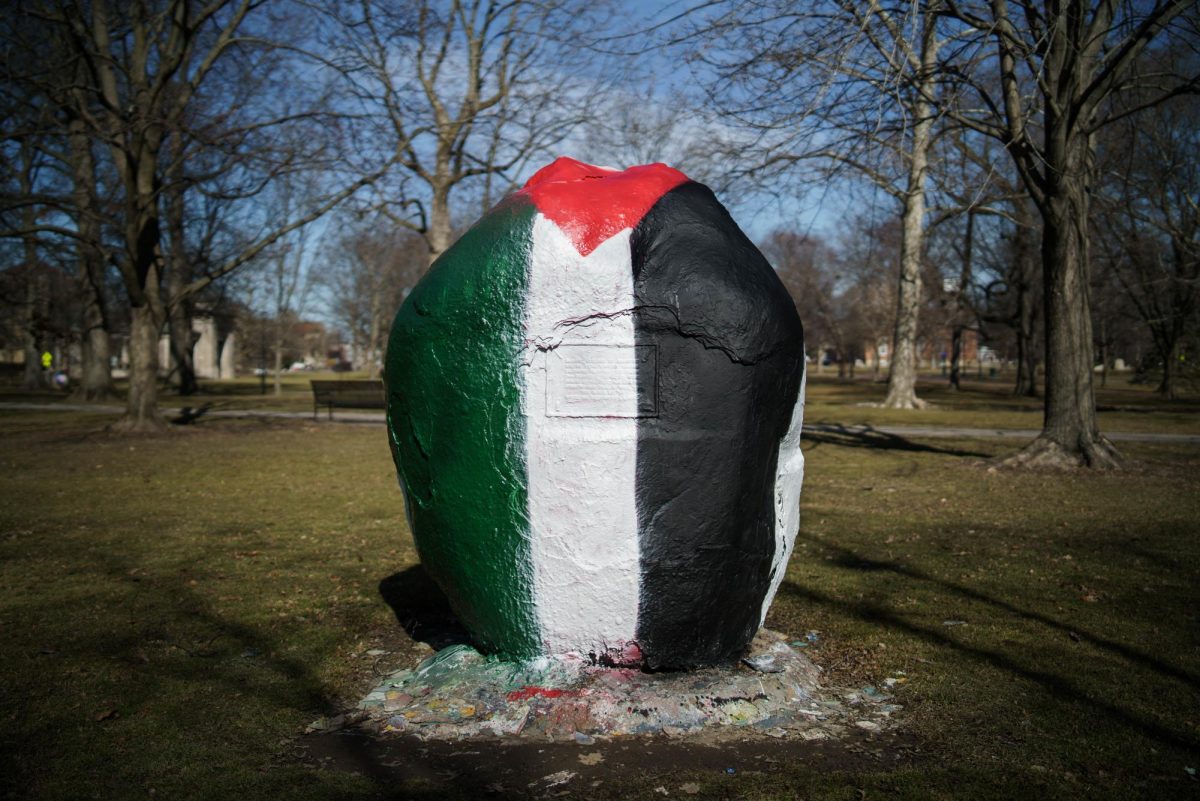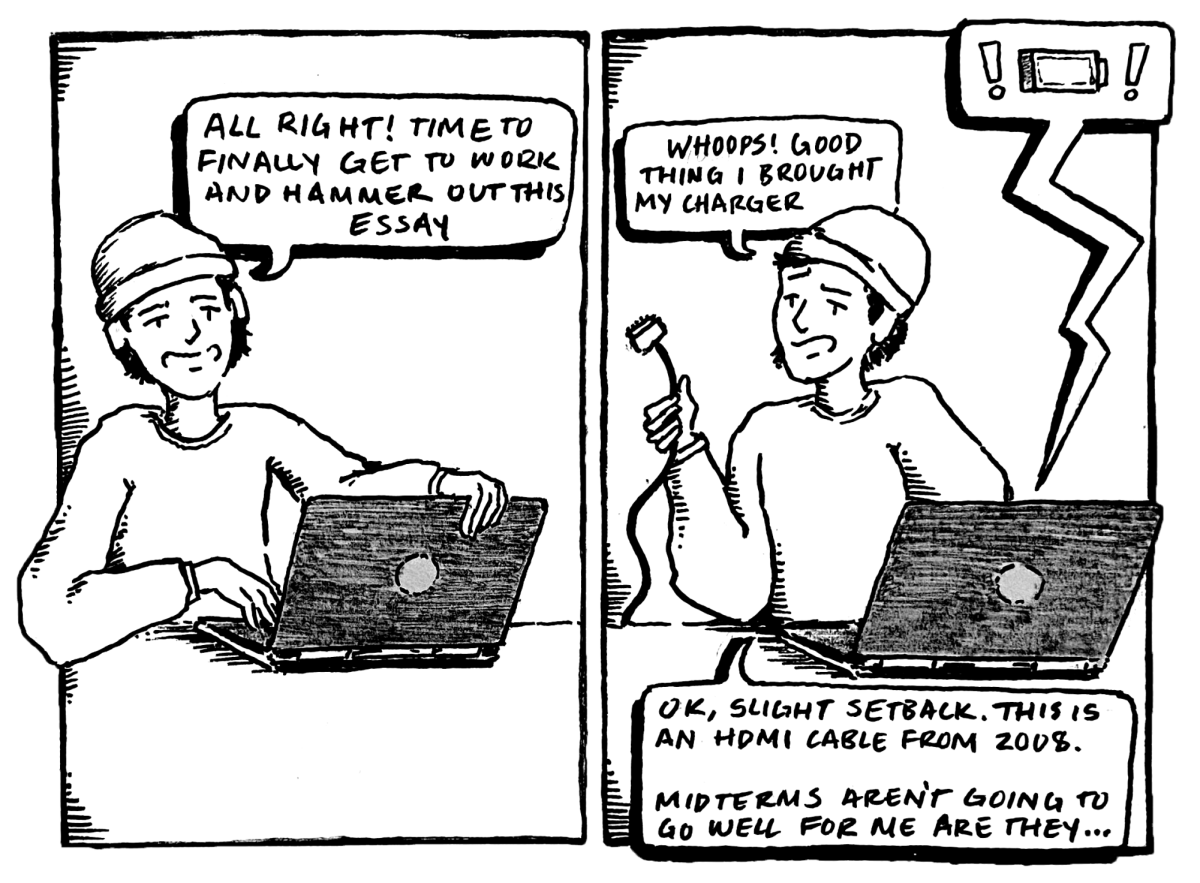In 1919, the sixth President of Oberlin College, Henry Churchill King, traveled to the Middle East at the request of President Woodrow Wilson. He and Charles Crane were tasked with surveying the population of Greater Syria, which had recently been taken from the Ottoman Empire following World War I, in order to understand local opinions and offer informed recommendations to the Paris Peace Conference. In Palestine, what King and Crane found was intense opposition to Zionist settlement, which had already begun and was playing out in the form of Jewish colonies established on land purchased from native Palestinians. By that time, about 10 percent of Palestine’s population was Jewish. During their survey, King and Crane witnessed a stark contrast between the language of the Balfour Declaration and the reality of Zionist colonization.
The Balfour Declaration, which was issued by the British government, promised “the establishment in Palestine of a national home for the Jewish people, […] it being clearly understood that nothing shall be done which may prejudice the civil and religious rights of existing non-Jewish communities in Palestine or the rights and political status enjoyed by Jews in any other country.” The latter portion of this promise went unfulfilled. King and Crane reported that “the Zionists looked forward to a practically complete dispossession of the present non-Jewish inhabitants of Palestine, by various forms of purchase,” and recommended that Zionism be implemented in an entirely different manner so as to protect the rights of non-Jewish Palestinians.
The rest of the history needs little explaining, as Palestinian dispossession was realized by a number of Zionist initiatives. In 1948, Israel’s establishment gathered a diasporic nation into a newly formed country, and simultaneously created a new diaspora by turning hundreds of thousands of Palestinians into refugees overnight. Seventy-five years later, we are witnessing a genocide in Gaza. Not simply a war between Israel and Hamas, but a genocidal war against the territory’s civilian population. It is important to use the language of genocide at a time when a member of the Israeli government and military are speaking about Gazans as animals and promising to treat them accordingly. Israeli forces are cutting off the most basic necessities of life as collective punishment, forcibly displacing millions with less than one day’s notice, leveling hospitals and schools, and withholding food and medical supplies. They have set up “safe zones” for noncombatants, only to subsequently slaughter displaced civilians within them. They are, in essence, making Gaza an inhospitable hell in hopes that it may be cleared of its Palestinian residents. Normally, genocide is hard to prove because intent is a mental process that cannot be so easily extracted from people’s thoughts. It is not so in this case. Israeli officials, including the Prime Minister, President, and Minister of Defense, have made it crystal clear that their intentions are to displace and destroy the people of Gaza. As Israel’s Minister of Defense Yoav Gallant stated, “Gaza won’t return to what was before. We will eliminate everything. If it doesn’t take one day, it will take a week. It will take weeks or even months, we will reach all places.” Israel’s professed reason for its military operations — freeing Israeli hostages and crippling Hamas as a political entity — has taken a back seat to widespread and indiscriminate destruction and death, which has included the killing of Israeli hostages by IDF soldiers.
Amidst this genocide, President Carmen Twillie Ambar has remained silent. Her initial messages after Oct. 7 made her position on violence abundantly clear, and she did not hesitate to condemn Hamas in a schoolwide message for their murder of innocent Israelis. Over three months into a campaign that has seen Israel murder at least 25,000 people, displace over 80 percent of Gazan residents from their homes, and destroy significant percentages of schools, houses, mosques, and hospitals in both northern and southern Gaza, President Ambar has said nothing. Nothing acknowledging the genocidal intent of the Israeli government, nothing about the 10,000 children who have been murdered in cold-blooded revenge, nothing about the historical violence of the Israeli state against the Palestinian people. She has offered complete silence. I am angry, not only because I am a Palestinian. Not only because I have family who live under apartheid and the threat of death and injury. I am angry because I recognize the blatant racism and double standards involved in Western discussions of Israel and Palestine. Because the school I pay thousands to attend, which drew me to its halls by flouting its progressivism, has finally proven to me that that progressivism is a façade.
Oberlin’s administration should be ashamed. This college is a degraded version of itself, and the disinterested liberalism that characterizes the school’s leaders today is a testament to that fact. It took the College nearly a decade to divest from South African Apartheid. It remains to be seen whether it will ever stand up for justice in the case of Palestine. I have no illusions about Oberlin’s sphere of influence. I know that a call for a ceasefire or, far short of that, a simple acknowledgement of the grave injustice committed against Palestinians, would do little to change the situation. But I should hope that an institution like Oberlin would have enough courage to do something, however insignificant, rather than nothing. I co-wrote an op-ed just a few months ago about the need to remain civil in campus discourse (“Call for Cohesion Amid War in Israel–Palestine,” The Oberlin Review, Nov. 3, 2023). Today I offer my voice, with as much civility as I can muster while a genocide is taking place in broad daylight, to say that I will never forgive the world for its response to Gazan suffering. It has become quite clear that we are not human enough to merit the sympathy that Western suffering receives.
By the time Henry Churchill King and Charles Crane arrived on the eastern shores of the Mediterranean, the Sykes–Picot Agreement had already been signed in secret, dividing the Middle East along arbitrary lines to be shared by Britain and France. Perhaps King’s voice did not hold much weight on the grand stage of history, but by compiling his report honestly and openly, he maintained some semblance of integrity. He attempted to give a voice to the voiceless, to influence the decisions of those more powerful than him towards a more ideal outcome. That appears to be something that the Oberlin of today is wholly incapable of. Perhaps if King’s report had been taken seriously, the Palestine of today, and the Middle East as a whole, would be a more just and equal place.



